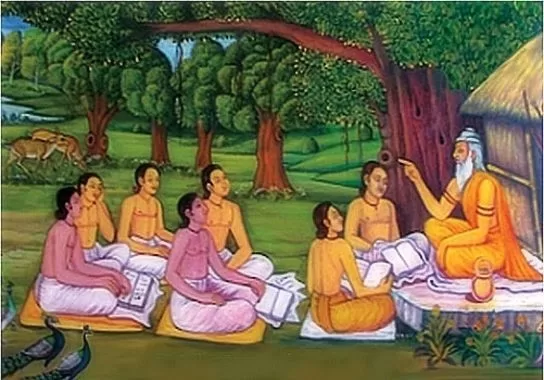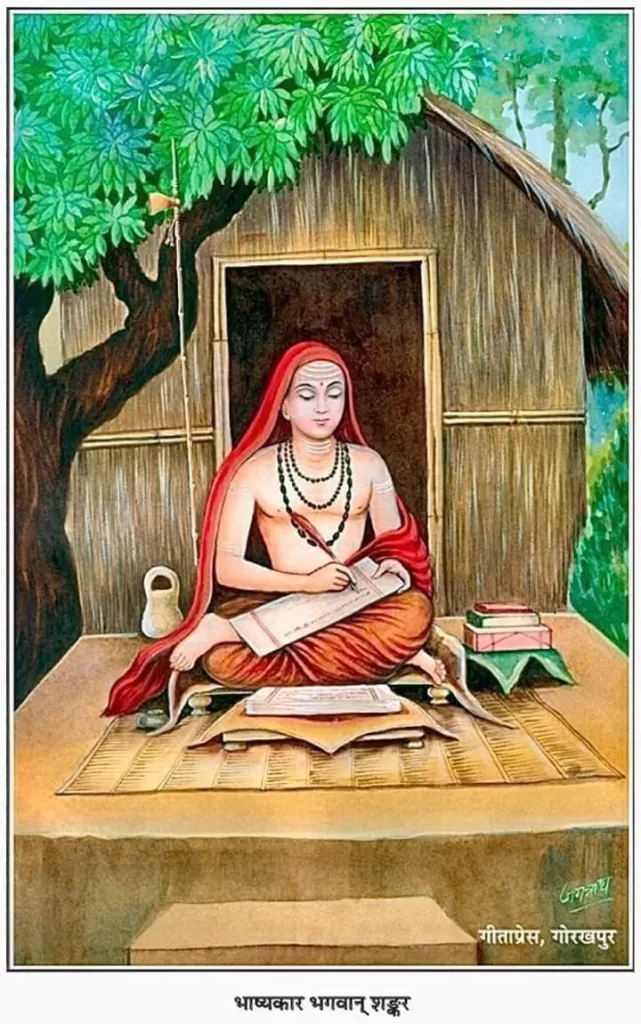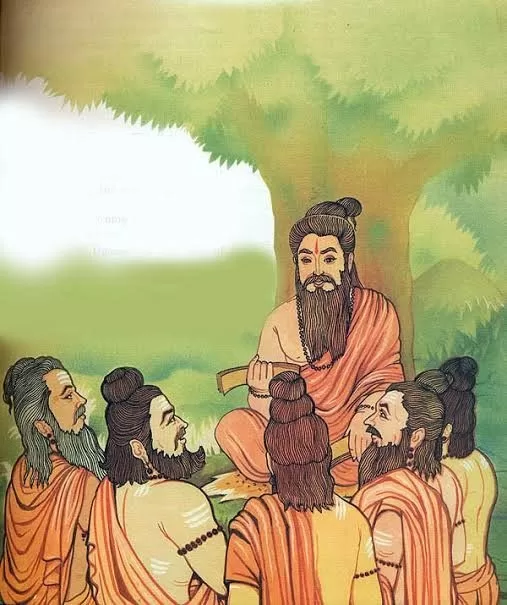Essay on Acharya Devo Bhava in English 750 words

“Acharya Devo Bhava” – Revering the Teacher as Divine
Introduction:
Essay on Acharya Devo Bhava : “Acharya Devo Bhava” is a profound Sanskrit phrase that translates to “The teacher is like unto a god.” This ancient adage encapsulates the deep-seated respect and reverence that Indian culture and tradition have for teachers. In a land known for its rich heritage of knowledge and wisdom, the teacher has always occupied a position of utmost importance. This essay delves into the significance of the teacher in Indian society, the historical context of this saying, its relevance in the modern world, and the implications of embracing this philosophy.
Historical Context:
The roots of “Acharya Devo Bhava” can be traced back to ancient India, where the teacher-student relationship was considered sacrosanct. This reverence for teachers finds mention in various ancient Indian texts, including the Vedas, Upanishads, and the Mahabharata. The concept of guru-shishya (teacher-student) tradition has played a pivotal role in shaping Indian education and culture.
In the Vedic period, teachers or gurus were the primary disseminators of knowledge. Students lived with their gurus, imbibing knowledge not just through formal lessons but also through day-to-day interactions. The guru was more than an educator; they were a guide, mentor, and spiritual leader. This close bond between the teacher and student fostered deep respect and gratitude.
Significance in Indian Society:
- Preservation of Knowledge: “Acharya Devo Bhava” underscores the idea that teachers are the torchbearers of knowledge. In a society where oral traditions were crucial for passing down wisdom, teachers played a pivotal role in preserving and transmitting ancient texts, rituals and sciences.
- Moral and Ethical Guidance: Teachers were not just educators but also moral and ethical guides. They instilled values, ethics and discipline in their students. This nurturing of character was seen as equally important as academic learning.
- Cultural and Spiritual Guidance: India’s rich tapestry of culture and spirituality has been upheld through generations by teachers. They introduced students to religious texts, rituals and practices, ensuring the continuity of spiritual heritage.
- Role Models: Teachers were considered role models in every sense. Their behaviour, wisdom and demeanor were emulated by students, shaping them into responsible and knowledgeable individuals.
Relevance in the Modern World:
The concept of “Acharya Devo Bhava” remains relevant in the contemporary world, albeit with some adaptations:
- Respect for Educators: In today’s globalized society, educators play a pivotal role in shaping the future. Recognizing teachers as agents of change fosters a conducive learning environment.
- Mentorship: Beyond traditional classrooms, mentors and guides are essential in various fields. Acknowledging their contributions and wisdom helps in personal and professional growth.
- Lifelong Learning: In a rapidly changing world, the value of learning is paramount. Teachers and mentors continue to guide individuals on their lifelong learning journey.
- Cultural Preservation: In multicultural societies, teachers and educators often become custodians of cultural heritage. Respecting them ensures the preservation of diverse traditions.
Implications and Applications:
- Enhanced Learning Experience: When students respect and revere their teachers, it creates a positive learning environment. Students are more likely to be attentive, respectful and open to learning.
- Teacher Motivation: Teachers who feel appreciated and respected are more likely to be motivated and dedicated to their profession. This, in turn, benefits the quality of education.
- Character Building: The moral and ethical guidance provided by teachers can have a lasting impact on a student’s character, contributing to a more compassionate and responsible society.
- Cultural Preservation: Respecting teachers as custodians of culture can help in preserving cultural diversity and preventing cultural erosion.
“Acharya Devo Bhava” encapsulates the essence of the teacher-student relationship in Indian culture. It emphasizes the significance of teachers as sources of knowledge, values and guidance. While rooted in history, this philosophy continues to hold relevance in the modern world, where education and mentorship play pivotal roles. Embracing this philosophy can lead to enhanced learning experiences, motivated educators, and a society rooted in knowledge, values, and tradition. Thus, “Acharya Devo Bhava” serves as a timeless reminder of the vital role that teachers play in shaping individuals and society as a whole.
let’s delve deeper into the various facets of “Acharya Devo Bhava” and its implications:
- The Guru-Shishya Tradition: Central to the philosophy of “Acharya Devo Bhava” is the age-old guru-shishya tradition. In this relationship, the guru (teacher) is revered as the embodiment of knowledge, and the shishya (student) places unwavering faith in the guru’s guidance. This tradition encourages not just the acquisition of knowledge but also the transmission of wisdom and values from one generation to the next.
- The Guru as a Spiritual Guide: In India, teachers often have a profound influence on the spiritual journey of their students. Beyond imparting academic knowledge, they help students explore the deeper aspects of life, philosophy and spirituality. The guru is seen as a spiritual guide who assists in the inner growth of the individual.
- The Essence of Humility: “Acharya Devo Bhava” also teaches humility. When students regard their teachers as divine, they naturally adopt a humble attitude. This humility is essential for effective learning because it opens the mind to new ideas and perspectives.
- Cultural and Regional Variations: While the concept of respecting teachers is universal, its expression varies across cultures and regions. In India, it is exemplified through rituals like touching the feet of teachers as a sign of respect. In other parts of the world, different customs and traditions are observed to honor educators.
- Challenges in Modern Education: In today’s fast-paced educational landscape, there are challenges to upholding the ideals of “Acharya Devo Bhava.” Some educators face issues like lack of recognition, low salaries, or overwhelming workloads. Acknowledging and addressing these challenges is essential to ensure that the teaching profession remains attractive and respected.
- Global Application: While deeply rooted in Indian culture, the essence of “Acharya Devo Bhava” can be applied universally. Regardless of cultural background, recognizing the importance of teachers and mentors can enhance the quality of education and personal development.
- The Teacher-Student Bond: The relationship between a teacher and a student is often one of the most enduring and impactful connections in a person’s life. Students who maintain a lifelong connection with their teachers often find continued guidance, support and mentorship even beyond the classroom.
- Promoting Critical Thinking: Respecting teachers does not mean blind acceptance of everything they say. Instead, it encourages critical thinking. A teacher’s role is not just to impart information but also to stimulate intellectual curiosity and independent thought in students.
- Teachers as Innovators: Teachers are not just transmitters of existing knowledge; they are also innovators. They adapt to changing times, update their teaching methods and often contribute to the development of new knowledge. Recognizing and supporting this aspect of their role is crucial.
- A Lifelong Journey: “Acharya Devo Bhava” is not limited to the student phase of life. It extends to one’s entire life journey. Throughout life, individuals encounter various mentors and guides who continue to shape their thinking and actions.
In conclusion, “Acharya Devo Bhava” is a philosophy that celebrates the profound impact teachers and mentors have on our lives. It emphasizes the importance of not just acquiring knowledge but also imbibing values, wisdom and a sense of humility from our educators. This timeless concept transcends cultural boundaries and remains relevant in a world where education and guidance play pivotal roles in personal and societal development.
Essay on Acharya Devo Bhava 500 words

Introduction
“Acharya Devo Bhava” is a Sanskrit phrase that translates to “The teacher is like unto a god.” This profound concept highlights the pivotal role that teachers play in our lives, emphasizing the respect, reverence, and gratitude we owe them. In a society where knowledge is revered, the idea of respecting teachers as divine figures has deep historical roots. In this essay, we will explore the significance of Acharya Devo Bhava and its relevance in today’s world.
Historical Significance
The roots of Acharya Devo Bhava can be traced back to ancient India, where teachers held an esteemed position in society. In the Gurukul system of education, students lived with their gurus (teachers) and imbibed not only knowledge but also values, ethics, and life skills. This sacred bond between teacher and student formed the basis of lifelong learning.
The guru was not just an educator but also a mentor, guide, and spiritual leader. Students would often prostrate before their gurus, seeking blessings and wisdom. This tradition of respecting and honoring teachers has been an integral part of Indian culture for millennia.
Relevance in Modern Times
In today’s fast-paced world, where information is easily accessible through the internet, the role of teachers might appear to have diminished. However, the essence of Acharya Devo Bhava remains as relevant as ever. Here’s why:
- Shaping Minds and Character: Teachers continue to shape the minds and character of future generations. They not only impart knowledge but also instill values, critical thinking, and problem-solving skills.
- Mentorship: Teachers provide mentorship and guidance to students, helping them navigate the complexities of life and make informed choices.
- Fostering a Love for Learning: A dedicated teacher can ignite a passion for learning that lasts a lifetime. They inspire curiosity and creativity in their students.
- Moral and Ethical Values: Teachers play a crucial role in imparting moral and ethical values, contributing to the development of responsible and ethical citizens.
- Emotional Support: In addition to academic guidance, teachers often provide emotional support and a safe space for students to express themselves.
- Building Confidence: Through encouragement and constructive feedback, teachers help students build self-confidence and overcome challenges.
- Respecting Diversity: Teachers promote tolerance and respect for diversity by creating inclusive and equitable learning environments.
Challenges Faced by Teachers
While the concept of Acharya Devo Bhava is timeless, it’s important to acknowledge the challenges that teachers face in the modern era. These challenges include:
- Heavy Workloads: Teachers often have to manage large class sizes and extensive administrative tasks, leaving them with limited time for individualized attention to students.
- Lack of Resources: In many parts of the world, teachers face a shortage of resources, including teaching materials and technology.
- Low Pay and Recognition: Despite their vital role, teachers in some regions receive inadequate pay and lack the recognition they deserve.
Conclusion
Acharya Devo Bhava reminds us that teachers are not just educators but also torchbearers of wisdom, compassion, and guidance. Their influence extends beyond the classroom and molds the future of society. As we reflect on this ancient concept, it becomes evident that honoring and respecting teachers is not a mere tradition but a timeless principle that should be upheld and promoted in our modern world. Only by recognizing the invaluable contributions of teachers can we aspire to build a brighter future for ourselves and generations to come.
Essay on Acharya Devo Bhava 300 words

Introduction:
“Acharya Devo Bhava” is a profound Sanskrit phrase that translates to “The teacher is like unto God.” This ancient Indian principle highlights the unparalleled significance of teachers in our lives. It emphasizes that educators should be revered and respected on par with deities. This essay delves into the essence of this concept and its relevance in today’s world.
The Significance of Acharya Devo Bhava:
Acharya Devo Bhava underscores the pivotal role teachers play in shaping individuals and society. In the Indian tradition, teachers are not merely imparting knowledge; they are molding character, instilling values and igniting a lifelong thirst for learning. This reverence acknowledges that teachers, like deities, possess wisdom and power and their guidance leads us from ignorance to enlightenment.
Teacher-Student Relationship:
This principle fosters a strong bond between teachers and students. When students hold their teachers in high esteem, it creates an environment conducive to effective learning. It encourages open communication, respect, and a willingness to learn. In such an atmosphere, students are more likely to seek guidance and teachers are inspired to provide it wholeheartedly.
Relevance in the Modern World:
In today’s fast-paced, technology-driven world, the essence of Acharya Devo Bhava remains pertinent. Despite the evolution of teaching methods, the teacher’s influence on a student’s character and moral compass remains irreplaceable. This concept serves as a timeless reminder that even in the digital age, the value of a dedicated, knowledgeable and compassionate teacher cannot be underestimated.
Conclusion:
Acharya Devo Bhava encapsulates the timeless respect and reverence for educators. It is a guiding principle that reminds us of the transformative power of teachers in shaping our lives and society. In an era marked by innovation and change, this ancient adage reminds us to never lose sight of the profound impact a teacher can have on our journey of learning and personal growth.
Essay on Acharya Devo Bhava 150 words
Acharya Devo Bhava, a Sanskrit phrase, embodies the profound reverence and respect accorded to teachers in Indian culture. It translates to “Teacher is God.” This ideology underscores the vital role educators play in shaping the minds and character of students.
In India, teachers are held in high esteem as they are considered the guiding light on the path of knowledge. They not only impart academic wisdom but also nurture values, ethics, and life skills. Students are encouraged to view their teachers as mentors, role models, and even as revered figures.
The concept of Acharya Devo Bhava promotes a harmonious student-teacher relationship based on trust and admiration. When teachers are regarded as divine, students tend to be more receptive, eager to learn and respectful. This bond fosters an environment where education flourishes, and students grow into responsible citizens.
In conclusion, Acharya Devo Bhava underscores the indispensable role of teachers in society. By treating them as gods, we acknowledge their invaluable contributions and ensure the perpetuation of knowledge and wisdom for generations to come.
Quick links:
Industrial pollution: Causes, effects & solution
The Indian Freedom Struggle: A Journey towards Independence
Budhism- Remarkable History, Origin and Teachings
How to write an essay effectively in English 2000 words
Study smart techniques for compititive exams
Social sharing ⬇️